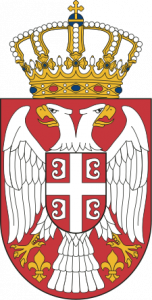Since January 2021, European Policy Centre Belgrade (CEP) has implemented a three-year-long project initiative supported by a grant from Iceland, Liechtenstein, and Norway through the EEA and Norway Grants Fund for Regional Cooperation titled “Implementing shared anti-corruption and good governance solutions in Southeast Europe: innovative practices and public-private partnerships” with partner organisations from eight Southeast European countries and three international expert organisations:
The project’s overall objective was to deliver shared anti-corruption solutions to increase the accountability of state institutions and strengthen civil society and the rule of law in Southeast Europe (SEE). Such was be achieved through capacity building on implementing innovative research instruments of European social research which were selected as examples of best practice. Moreover, the objective was attained through established a knowledge-sharing public-private partnership between civil society and public sector actors in nine beneficiary countries. The action aimed to close anti-corruption policy implementation and public procurement gaps across SEE which will further amplify the impact of the planned increase in EU infrastructure support until 2025. It pulled together resources of the largest grassroot civil society anticorruption network – Southeast European Leadership for Development and Integrity (SELDI), the abovementioned international expert organisations and the State Commission for Prevention of Corruption of North Macedonia, and the anti-corruption resource centre U4.
Partners implemented Monitoring Anticorruption Policy Implementation (MACPI) instrument which resulted in analysis, i.e., technical reports for the management of analysed public bodies, complemented by desktop research and consultations. In addition, Opentender.eu was updated for large-scale public procurement analysis, including new corruption risk indicators, and implemented annually in nine countries. Finally, three Annual SEE Good Governance Reports, included the key MACPI and Opentender findings, were discussed at Policy Forums. A comprehensive communication and engagement strategy reinforced the project’s impact. Partners developed specific advocacy ideas and messages and put them forward in a public-private format.
The project was a unique opportunity to jump-start public-private action and mainstream the best EU practices and shared anti-corruption policy solutions that helped reduce social and economic disparities in the EEA.
Contact person: Andrija Mladenović, Project Coordinator – andrija.mladenovic@cep.org.rs
Publications published within the project:
Unveiling Challenges in Serbian Public Procurement – A Call for Change
Rolling Back State Capture in Southeast Europe – Implementing Effective Instruments for Asset Declaration and Politically Exposed Companies
A Game of Hide and Seek – Asset Declarations for Public Officials
State Capture Assessment Diagnostics at Sectoral Level: Training manual
Blogs published within the project:
Asset Declaration in South East Europe – an (In)sufficiently Successful Instrument for Corruption Prevention (SRB)
Where Are the Continued Public Procurement Deficiencies Leading Serbia?
Public Procurement: A Brake or a Step Forward in the European Integration of Serbia
Events held within the project:
Implementing Shared Anti-Corruption аnd Good Governance Solutions in Southeast Europe: Innovative Practices and Public–Private Partnership
First Annual Summer School: Methodologies for monitoring anticorruption policies, state capture and public procurement integrity
Tackling State Capture in Southeast Europe: Delivering on the European Rule of Law Promise
Follow the Money: Tracking Illicit Financial Flows and Countering of Sanctions’ Evasion Schemes


